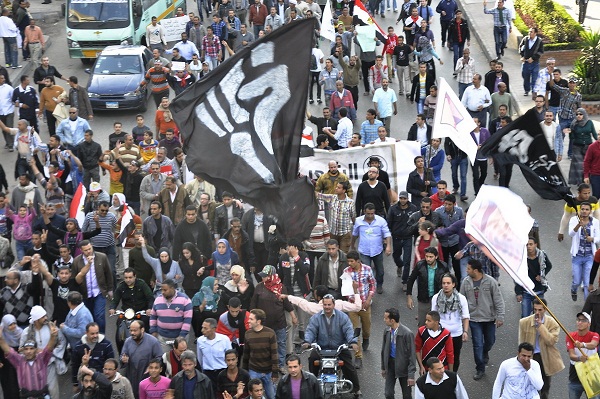CAIRO: The US department of public diplomacy and public affairs recently announced that the United States will accept 7,000 Iraqi refugees who will be screened and approved this year by the office of the United Nations High Commission for Refugees (UNHCR).
The announcement comes amid growing discontent at the Bush administration’s lack of attention to the refugee crisis caused by the lingering US-led war on Iraq.
Paula Dobriansky, the undersecretary of state for public diplomacy and public affairs, a vociferous proponent of the Bush s administration s crusade to spread democracy and human rights, said at the release of the State Department s annual human rights report in March 2005: Promoting human rights is not just an element of our foreign policy, it is the bedrock of our policy and our foremost concern.
She was nominated head of the new State Department task force on the Iraqi refugee crisis in 2005.
Yet, the US has only taken in 202 Iraqi refugees so far.
Roughly 1.5 million Iraqis have been forced from their homes as a result of sectarian violence. Hundreds of thousands more have trekked across the border to Syria, Jordan, Lebanon, Turkey and Egypt.
In Cairo, public opinion has been sympathetic with the refugee disaster.
Imagine not feeling safe in your own country with having no place to turn to. I can t take in how devastating that must be. Iraqi citizens can t satisfy the most basic of their human needs. Even the thought of waking up in the morning and feeling safe is out of question, says EFG Hermes Analyst, Yehya Abdel Latif.
So the question should not be about who is responsible for the mess created, but what can be done, now, he added.
Aside from taking in families, giving the UN s refugee agency more money to aid those who have fled to Iraq s neighbors is a crucial step to solving this problem, said Marwa Abdelfattah, external relations assistant to the UNHCR s public information office.
Antonio Guterres, High Commissioner for Refugees urged in a recent press conference that the US needs to do more to help the millions of Iraqis who were forced to flee their country.
Syria and Jordan in particular have been overwhelmed with unemployed Iraqis who have no means of sustaining themselves in these countries’ already ailing economies.
Secretary of State Condoleezza Rice earlier this month formed a special task force to coordinate refugee assistance to the nearly two million refugees.
In addition to opening US borders to refugees, the US promised to contribute $18 million for a worldwide resettlement, representing 30 percent of UNHCR s $ 60 million appeal.
Despite these promises, observers question how this will be implemented.
US/CNN anchor and correspondent Randi Kaye wrote in a recent article: Just how many Iraqi refugees the US will take in this year is an open question.
Ellen Sauerbrey, the assistant secretary of state for Population Refugees and Migration said: We have really not established a number. The first thing that we need to do is to identify the most vulnerable so that we have some idea what the needs are.
She says the Bush administration is in the early stages of getting refugees referral from the UN.
But it also depends on the resources we get from Congress at this point, because congress is operating under continuing resolution, we don t know what our funding is going to be for how many refugees we will be able to admit worldwide.
But a statement released by United States Senator for Massachusetts, Edward M. Kennedy says that funding should not be an issue.
We re spending $ 2 billion a week in Iraq and it seems to me that we can find a way of settling a few thousand individuals who have devoted their lives to helping and assisting Americans and now risking assassination and killing in the present time. We have a tight budget, but I don t think it s that tight.
Human rights groups are calling on the US to take more than a few thousand Iraqi refugees. They say of the 70,000 worldwide refugee admissions that the state department has planned for, 20,000 slots remain unallocated and should be set aside for Iraqis.
Some critics suggest the administration doesn t have the political will to do that because allowing such a large resettlement could look like an admission of failure in Iraq.


